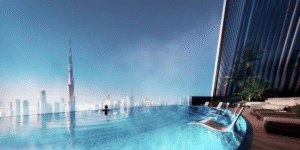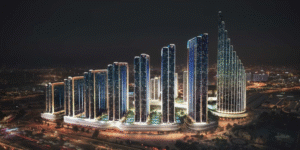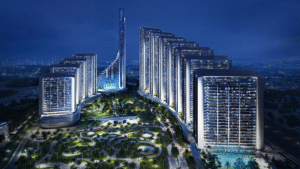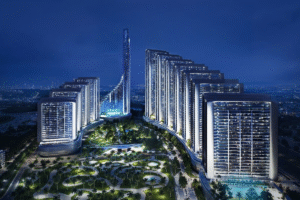The future of real estate in Dubai is set for dynamic growth due to technological advancements, changing consumers’ needs, and strategic infrastructural developments. With the city moving onto firm ground as a global investment center, several key trends are showing up that will impact the real estate environment.
1. Surge in Rental Market Demand

The rental market in Dubai is having a notable upswing. The number of short-term rentals is expected to jump 18%, while the longer-term leases could increase by more than 13% in 2025. This upswell is due to the arrival of international professionals who have driven up property prices, and rental property has become a more appealing option to many. Places such as Jumeirah Village Circle (JVC) or Dubai Marina are experiencing an increased demand, because of the increased short-term rentals.
2. Expansion of Luxury Real Estate

Dubai’s luxury real estate sector is blossoming strongly. Property prices have increased by almost 20% in prime locations such as Palm Jumeirah and Emirates Hills. To cater to the growing demand, developers will finish nearly 9,000 luxury villas by the end of 2024, and another 19,700 villas can be completed next year. This expansion speaks volumes about Dubai’s appeal to high-net-worth people—they are looking for opulent residences.
3. Integration of Smart Technologies and Sustainability
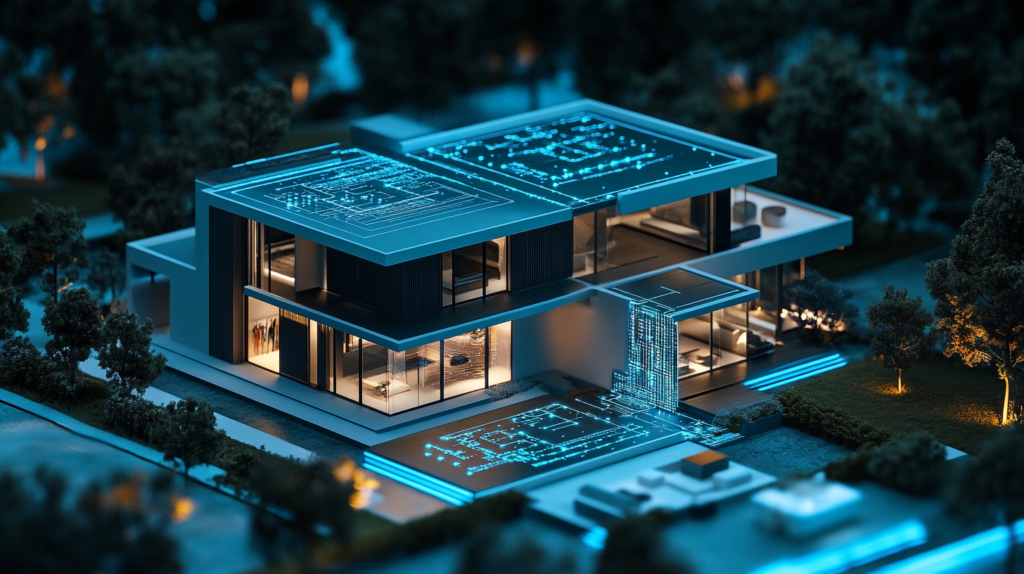
Most people think what is the future of Dubai real estate. Dubai’s real estate market is predicted to grow, driven by rising property values and new developments, particularly in luxury segments.
The incorporation of innovative technologies is changing the face of Dubai’s real estate business. Sustainability has continued to be a priority, with environmentally friendly buildings and solar energy mainstreamed, and the development of green communities is on the rise. These innovations are the future for the real estate sector in Dubai, a modern, sustainable approach to urbanization.
4. Robust Economic Growth and Investor Confidence

With the real estate’s significant role, Dubai’s economy is expected to grow by 6.2% by 2025. What also works to the city’s advantage is that it is a haven for investors who have even been accorded favorable government policies and tax incentives to encourage business at all levels within the country. In an era of increasing property valuations, Dubai is still not more expensive than other metropolitan cities such as New York and London, and presents good investment prospects for investors.
5. Emergence of New Communities and Infrastructure Developments

With established neighborhoods now at capacity, developers are concentrating on emerging areas on Dubai’s perimeter. Places like Emaar South, Valley, and Damac Hills 2 are rising with affordable housing and modern facilities. Complementing these developments are significant infrastructural works such as expanding the Dubai Metro, developing new road networks, and improving connectivity and accessibility.
6. Adoption of PropTech and Blockchain in Real Estate Transactions

The introduction of Property Technology (PropTech) and blockchain is changing real estate transactions in Dubai. Trends in Dubai, like blockchain technology, are being used to simplify property deals and ensure transparency while minimizing fraud. Smart home technologies increase residents’ control over their living environment, while AI-driven property management systems increase operational efficiency. Such technological improvements simplify and secure the real estate process for buyers and sellers.
7. Focus on Wellness and Lifestyle-Oriented Developments

Real Estate Trends in Dubai are increasingly favored by wellness and lifestyle developments. Developers are bringing on aspects such as fitness centers, spa facilities, and green spaces in their projects as per the health-conscious consumer. Neighbourhoods such as Dubai Hills Estate and The Sustainable City are excellent examples of neighbourhoods focused on well-being and living sustainably. Such communities provide the residents with a balanced lifestyle that is a fusion of luxury and environmental awareness.
8. Increased Demand for Co-Living and Short-Term Rentals

The co-living and short-term renting niche market is in growing demand due to the increased influx of international professionals and tourists. Co-living spaces provide cost-effective and flexible living solutions for young professionals and digital nomads. With online sites such as Airbnb making it easy for people to book, short-term rentals keep flourishing. Developers are taking advantage of this by developing properties and accommodating transient inhabitants, providing fully furnished units whose lease terms may be negotiable.
9. Rise of Branded Residences and Themed Developments

The real estate market in Dubai is increasingly interested in branded residences such as Mercedes-Benz and themed areas. Tyson’s partnership with local developers creates unique residential answers to market demand. For example, the Chelsea Residences in Dubai Maritime City have football-oriented amenities such as a rooftop football pitch and an aqua gym. Similarly, the Trump International Hotel and Tower Dubai is slated to have private residences, a five-star hotel, and the world’s tallest outdoor swimming pool. These will appeal to affluent buyers looking for exclusive, luxurious living experiences.
10. Regulatory Changes Impacting Buyers and Investors

New regulatory changes affect buyers and investors in Dubai real estate investment opportunities. From February 1st, 2024, per a UAE Central Bank decree, banks cannot finance standard 4% Dubai Land Department (DLD) charges and 2% real estate broker remittances in property mortgages. This regulation encourages responsible lending and conforms to the world’s best practices, but assumes that buyers are ready for larger upfront down payments. Besides, introducing the Smart Rental Index, an AI-powered system that evaluates the residential buildings’ quality, amenities, security, and sustainability, will bring a more transparent and sustainable lease environment.
Final Words
The future of real estate in Dubai is innovative, luxurious, and sustainable. With the progress of technology, infrastructural developments, and an emphasis on lifestyle-oriented living, the city is expected to follow its price from the global real estate market trends as a premier and leading destination. Both investors and residents may be assured of an exciting and prosperous year in Dubai’s real estate sector.
